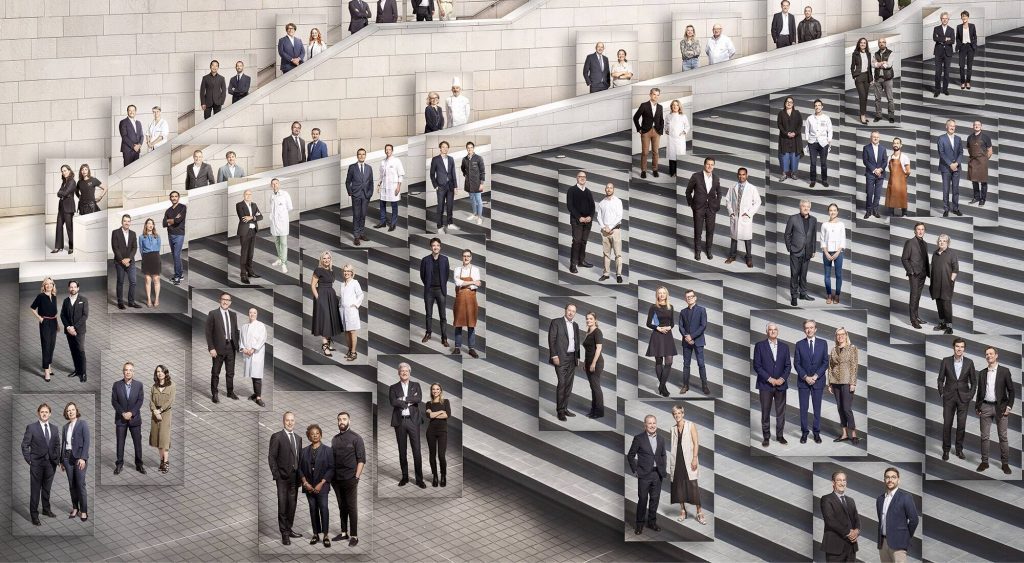A consolidated string of lawsuits over whether brands/retailers must make use of braille on gift cards in order to avoid liability under the Americans with Disabilities Act (“ADA”) was reviewed by a federal appeals court earlier this summer, marking the latest (and final) development in the closely-watched matter. In a decision in June, the U.S. Court of Appeals for the Second Circuit upheld the lower court’s dismissal of five consolidated cases brought by visually impaired plaintiffs, who had accused the defendants – including Swarovski, Banana Republic, and Kohl’s, among others – of violating the ADA by failing to offer up braille gift cards.
In affirming the lower court’s dismissal of the plaintiffs’ ADA claims for lack of standing and alternatively, for failure to state a claim, the Second Circuit determined that the plaintiffs’ “conclusory, boilerplate allegations” were insufficient to allege standing. Writing for the court, Judge Michael Park stated that in the five nearly identical complaints at issue, the plaintiffs asserted that they “live near [the] defendants’ stores, have been customers in the past, and intend to purchase gift cards when they become available in the future.” Missing from these allegations, according to the court, is “any explanation of how the plaintiffs were injured by the unavailability of braille gift cards or any specificity about the plaintiffs’ prior visits to the defendants’ stores that would support an inference that [they] intended to return.”
Specifically, the appeals court stated that the Second Circuit has previously “held that a plaintiff seeking injunctive relief has suffered an injury in fact when: ‘(1) the plaintiff alleged past injury under the ADA; (2) it was reasonable to infer that the discriminatory treatment would continue; and (3) it was reasonable to infer, based on the past frequency of plaintiff’s visits and the proximity of defendants’ [businesses] to plaintiff’s home, that plaintiff intended to return to the subject location” if braille gift cards were available. Here, the court determined that the plaintiffs’ allegations fell short in regard to the third prong – their intent to return and proximity – and thus, they failed to not establish a “material risk of future harm” that is “sufficiently imminent and substantial.”
At the same time, the court faulted the plaintiffs for their filings, stating that it “cannot ignore the broader context of the plaintiffs’ transparent cut-and-paste and fill-in-the-blank pleadings,” and their pattern of waging nearly-identical suits. “The four Plaintiffs before us filed 81 of over 200 essentially carbon-copy complaints between October and December 2019 – all us[ing] identical language to state the same conclusory allegations,” Judge Park stated. And to make matters worse, the complaints are rife with “errors, oddities, and omissions,” which the court claims are “a result of their mass production, [which] render each Plaintiff’s cookie-cutter assertion of standing implausible.”
With the foregoing in mind, and without analyzing the defendants’ failure to state a claim argument, the Second Circuit judges held that the district court did not err in dismissing the plaintiffs’ amended complaints for lack of standing.
In a concurring opinion, Judge Raymond Lohier stated that while he disagrees with the majority’s decision that the plaintiffs lack standing, he, nonetheless, finds that the complaints fail to state a cause of action under the ADA. Judge Lohier states that the “intent-to-return” prong is not a necessary element of standing (“Article III contains none of the requirements that the majority imposes in this case,” he claims) – and even if it was, the plaintiffs have adequately alleged such an intent by way of allegations that they live near at least one of the defendants’ businesses and previously visited the business at issue and that it was inaccessible, making it “plausible to infer that they intend to visit again.”
However, the plaintiffs’ cases still fail, according to Judge Lohier, as they do not allege that the defendants discriminated against them under the ADA by “denying [them] a full and equal opportunity to enjoy the services defendants provide.” In particular, he stated that the plaintiffs fail to state a claim since they “do not plausibly and adequately allege that the defendants denied them adequate auxiliary aids and services by failing to provide braille gift cards.” Simultaneously, he asserted that Braille gift cards are “not the only type of ADA-compliant auxiliary aid or service,” and the court “cannot plausibly infer from the [plaintiffs’] allegations that they … were denied other types of auxiliary aids or services.”
Reflecting on the outcome of the case, Jackson Lewis attorneys Jenna Eurell and Joseph Lynett state that it is “a welcome decision for businesses who have seen an unrelenting onslaught of public accommodation lawsuits.” The decision is an example of “the opportunities businesses have to successfully defend these public accommodation lawsuits and the potential to eliminate or significantly reduce the number of lawsuits by serial plaintiffs,” per Eurell and Lynett, who note that the Calcano case “demonstrates the vulnerability plaintiffs encounter to establish a real and imminent threat of harm to have standing to sue under the ADA where the plaintiffs file hundreds of complaints with nearly identical boilerplate allegations.”
In a nod to the influx of lawsuits over the past decade have targeted website operators – especially those in the retail sector – for allegedly failing to make their sites accessible to visually impaired consumers, Eurell and Lynett claim that among the things that “remain to be seen” in the immediate wake of the Second Circuit’s decision, they note, is “whether district courts [will] apply the reasoning of the Second Circuit, including Judge Lohier’s concurring opinion, to website accessibility lawsuits, another type of public accommodation claim that has maligned businesses for the past decade.”
The case is Calcano, et al. v. Swarovski North America Ltd., et al., 20-1594 (2d Cir. Jun. 2, 2022).











